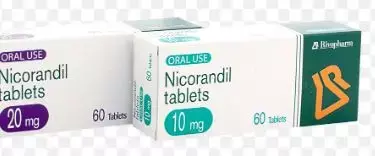- Home
- Medical news & Guidelines
- Anesthesiology
- Cardiology and CTVS
- Critical Care
- Dentistry
- Dermatology
- Diabetes and Endocrinology
- ENT
- Gastroenterology
- Medicine
- Nephrology
- Neurology
- Obstretics-Gynaecology
- Oncology
- Ophthalmology
- Orthopaedics
- Pediatrics-Neonatology
- Psychiatry
- Pulmonology
- Radiology
- Surgery
- Urology
- Laboratory Medicine
- Diet
- Nursing
- Paramedical
- Physiotherapy
- Health news
- Fact Check
- Bone Health Fact Check
- Brain Health Fact Check
- Cancer Related Fact Check
- Child Care Fact Check
- Dental and oral health fact check
- Diabetes and metabolic health fact check
- Diet and Nutrition Fact Check
- Eye and ENT Care Fact Check
- Fitness fact check
- Gut health fact check
- Heart health fact check
- Kidney health fact check
- Medical education fact check
- Men's health fact check
- Respiratory fact check
- Skin and hair care fact check
- Vaccine and Immunization fact check
- Women's health fact check
- AYUSH
- State News
- Andaman and Nicobar Islands
- Andhra Pradesh
- Arunachal Pradesh
- Assam
- Bihar
- Chandigarh
- Chattisgarh
- Dadra and Nagar Haveli
- Daman and Diu
- Delhi
- Goa
- Gujarat
- Haryana
- Himachal Pradesh
- Jammu & Kashmir
- Jharkhand
- Karnataka
- Kerala
- Ladakh
- Lakshadweep
- Madhya Pradesh
- Maharashtra
- Manipur
- Meghalaya
- Mizoram
- Nagaland
- Odisha
- Puducherry
- Punjab
- Rajasthan
- Sikkim
- Tamil Nadu
- Telangana
- Tripura
- Uttar Pradesh
- Uttrakhand
- West Bengal
- Medical Education
- Industry
Case of perianal ulcers as adverse effect of nicorandil: BMJ

Dr Patricia McGettigan, at clinical pharmacology and medical education , William Harvey Research Institute, Queen Mary University of London, UK and colleagues have reported a case of Painful perianal ulcers following use of nicorandil.
Nicorandil is a nicotinamide ester that dilates arteries and veins, reducing after-load and pre-load on the heart. Guidelines from the European Society of Cardiology and National Institute for Health and Care Excellence recommend nicorandil as second line treatment in the management of stable angina that is inadequately controlled by first line agents such as β blockers and calcium antagonists or where these agents are not tolerated.
It has been documented to cause a rare but serious adverse reaction of painful, non-healing ulcers that affect the skin and mucosa, eye, including the gastrointestinal tract and genitalia. These warnings have been reiterated by the World Health Organization.
A 73 year old man presented with painful ulcers around his anus that have worsened, despite his use of a barrier cream. His bowel habit was unchanged, his weight is stable, he is not anaemic, and he has experienced no rectal bleeding. He had ischaemic heart disease for which he took aspirin, atorvastatin, bisoprolol, diltiazem, nicorandil, and ramipril.
On examination, extensive perianal ulceration was noted. Rectal examination was painful, but no masses were evident. Since clinical findings did not suggest cancer or inflammatory bowel disease, it was diagnosed to represent an adverse reaction to nicorandil.
Depending on the severity of the ulcer and any complications, healing is reported within 2-4 months after cessation, longer for more severe ulcers.
"The single effective treatment for the ulcers is to stop the nicorandil. . Stopping nicorandil treatment is unlikely to increase the risk of cardiovascular events, although it may exacerbate anginal symptoms. Discuss substituting or increasing the dose of another anti-anginal drug for symptomatic relief if the patient experiences symptoms on stopping nicorandil. Explain to the patient that nicorandil is a possible cause for the painful ulcers even though the drug has been taken for some time. Discuss substituting another anti-anginal drug or stopping altogether. Assess anginal symptoms and if the patient is still in cardiology care, keep the cardiologist informed."the team opined.
Based on the case some important observations were made.
· The ulcers are rare; some arise soon after commencing nicorandil, others after years of uneventful treatment.
· The only effective treatment for the ulcers is cessation of nicorandil; other treatments are ineffective or harmful.
For full article copy link : https://doi.org/10.1136/bmj.m3351
Primary source:British Medical Journal
Dr Satabdi Saha (BDS, MDS) is a practicing pediatric dentist with a keen interest in new medical researches and updates. She has completed her BDS from North Bengal Dental College ,Darjeeling. Then she went on to secure an ALL INDIA NEET PG rank and completed her MDS from the first dental college in the country – Dr R. Ahmed Dental College and Hospital. She is currently attached to The Marwari Relief Society Hospital as a consultant along with private practice of 2 years. She has published scientific papers in national and international journals. Her strong passion of sharing knowledge with the medical fraternity has motivated her to be a part of Medical Dialogues.
Dr Kamal Kant Kohli-MBBS, DTCD- a chest specialist with more than 30 years of practice and a flair for writing clinical articles, Dr Kamal Kant Kohli joined Medical Dialogues as a Chief Editor of Medical News. Besides writing articles, as an editor, he proofreads and verifies all the medical content published on Medical Dialogues including those coming from journals, studies,medical conferences,guidelines etc. Email: drkohli@medicaldialogues.in. Contact no. 011-43720751


